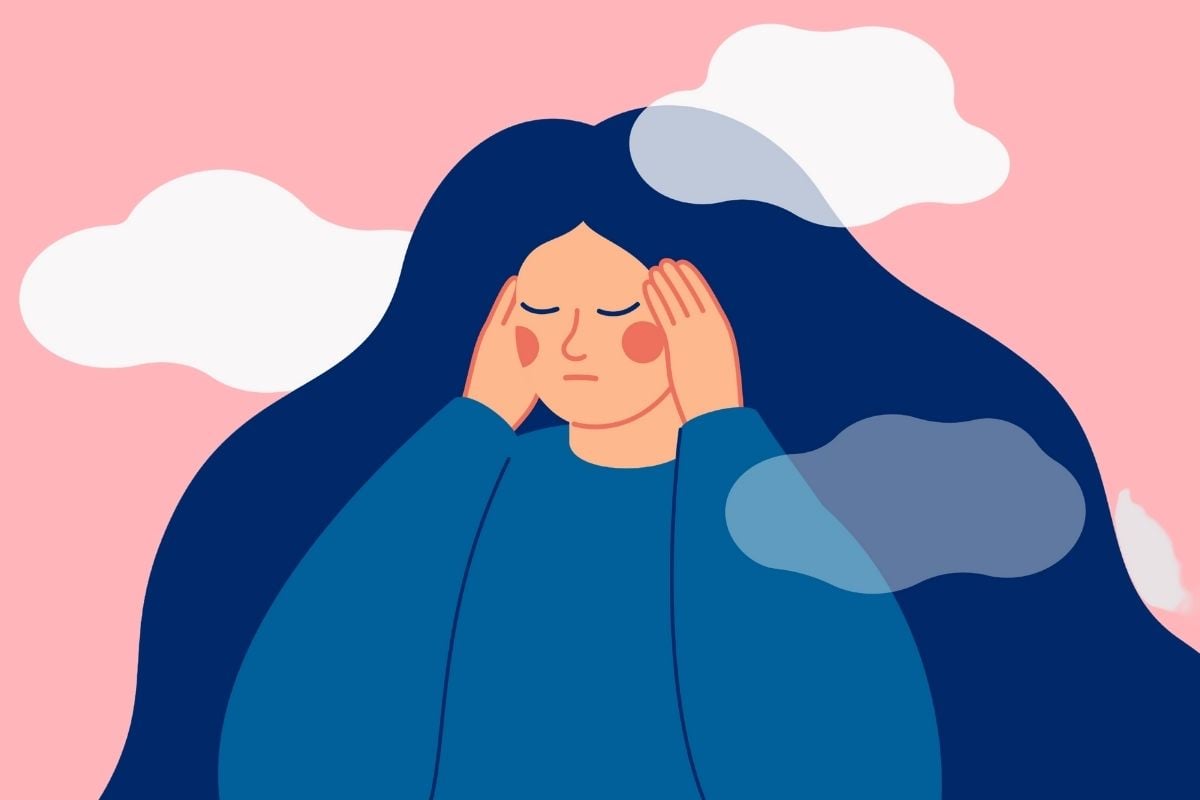
If you're not feeling like your usual self, please take a seat - 'cause you're not alone, friend.
While we're all aware that laying on the sofa, skipping the ol' daily walk and screening (read: rejecting) phone calls isn't exactly great for our health, it could actually be doing more harm to your brain than you might think.
And we're not just talking about being in a s**t mood 24/7. We're talking about cognitive decline and memory loss.
Watch: Things you probably wouldn't say in the new normal of lockdowns and closed international borders. Post continues below.
"Everything seems to get worse during lockdown. Our mental health spirals into an unsettling combination of anxiety and boredom; and obviously we are deprived of many of the pleasures which usually sustain us," said Sydney neurologist Dr Kate Ahmad.
"For some of us there are immovable barriers to having a positive lockdown – it’s hard to be happy when you’ve lost your job, your financial security or all your social contact."
However, the good news is that tweaking some bad habits in your day-to-day routine could not only change how your brain works (huge) but also help make lockdown a little more bearable.



Top Comments